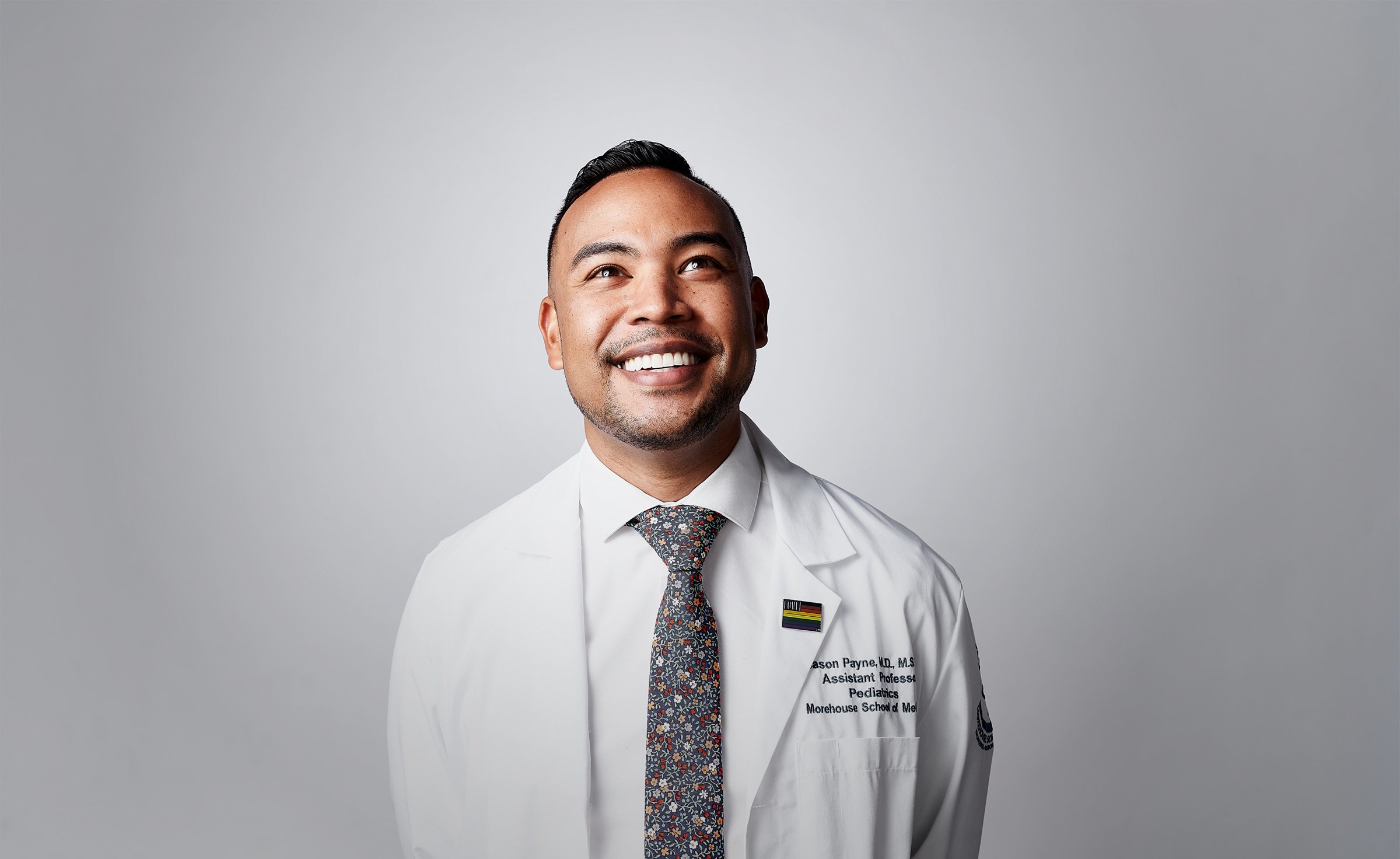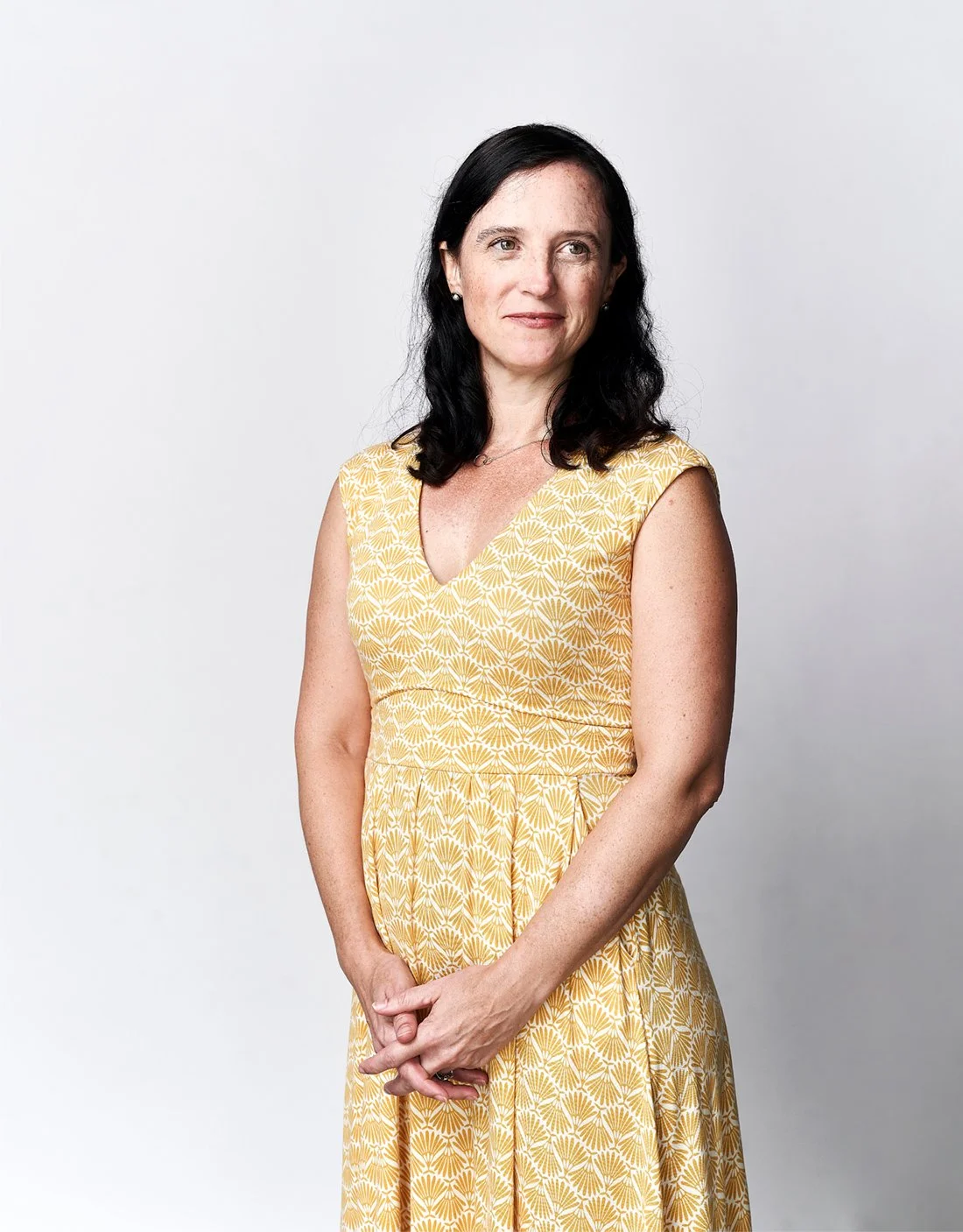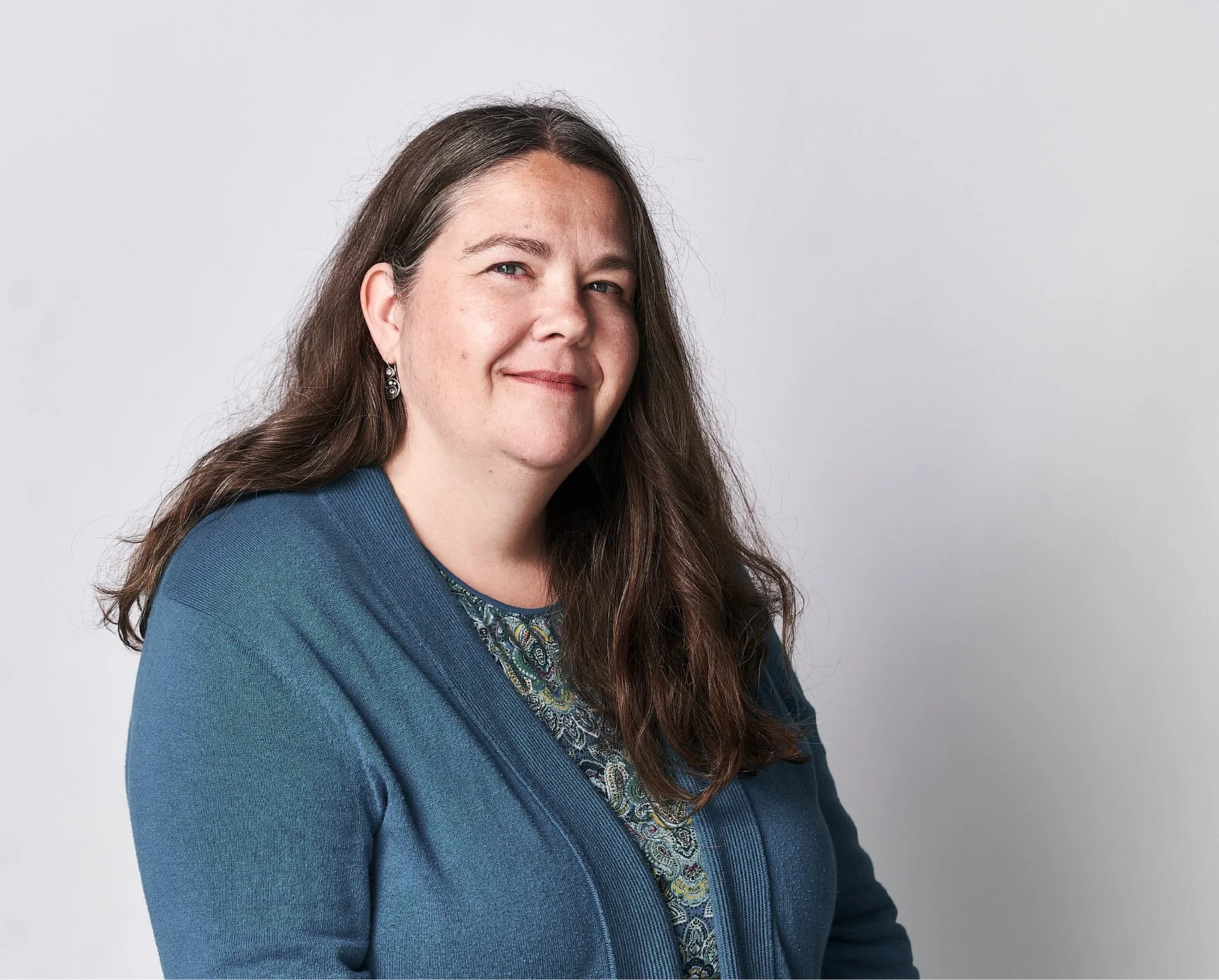A Higher Calling

Before he began his earthly ministry, the gospel of Mark hints, Jesus was a carpenter or builder. He probably worked with his hands just as his earthly father, Joseph, did before him.
Only one verse directly addresses his employment as a young adult. Mark 6:3 says, in part, per the New Revised Standard translation, that when people saw Jesus, they said to one another, “Is not this the carpenter?” Another verse, Matthew 13:55, refers to him as “the carpenter’s son.”
Biblical scholars have since studied and speculated at length on Jesus’s exact occupation. Jesus could have been a stonemason or woodworker, built towers, or practiced general craftsmanship in various materials.
Regardless of what he actually did with his hands, the idea that Jesus worked among his fellow Jews shows Christians, in a way, that work is to be honored—not just the priesthood and holy orders but honest labor in general. And like priests, nuns, and friars, people in ordinary careers can feel that they have a divine call to practice their trade.
Presiding bishop Michael Curry talks about vocations in his book Love Is the Way. “When you discover your nature and live into it, self-love radiates,” Curry said. “Others feel it and benefit from it. Your joy gives you an energy that helps you to love others as yourself.”
Michael Berg, assistant professor at Wisconsin Lutheran College in Milwaukee, says that ultimately a vocation is a call to serve God by serving others. “Everybody has a station in life—multiple stations, in fact,” Berg writes in his book Vocation: The Setting for Human Flourishing. “A woman may be a mother, lawyer, aunt, citizen, wife, volunteer at a local school, and so on.” All are honorable endeavors, Berg points out.
Although modern-day Americans may have a snobbish, hierarchical view of work, there is redeeming social benefit to some jobs deemed the lowliest. Garbage-worker strikes have illustrated the importance to individual hygiene and public health of having trash regularly collected. Long-haul truck drivers get the goods the public needs from one part of the country to another. Mechanics keep the vehicles on our roads safe, possibly preventing accidents and traffic tie-ups. Janitors maintain cleanliness, hindering the spread of disease. And people across the board can make life more pleasant for their fellow humans by treating coworkers and customers with respect, no matter what their role in the economy happens to be.
“There is no doubt that there are many talented musicians, math geniuses, and potential inventors who are subsistence farmers or migrant workers or who find themselves in factories or cubicles where their talents are underused or even ignored,” Berg writes. “It’s tragic, but this does not mean that those workers are not valuable. They still do God’s work, and it is important.”
Several years ago, for a Labor Day edition, the Atlanta Journal-Constitution asked readers to nominate workers who make the world brighter for their coworkers and customers. Praise came in for a variety of people. Among them were a radio switchboard operator who said, “I try to treat people the same—no one is better than anybody else”; a hair salon assistant who said, “I just treat people the way I want to be treated”; a school bus driver whose two rules were “be careful and be kind”; and a postal clerk who saw his job as providing his customers with solutions.
A Christian should not divide life into the sacred and the secular, said playwright and novelist Dorothy Sayers. “He must be able to serve God in his work, and the work itself must be accepted and respected as the medium of divine creation.”
ARIEL FRISTOE
Socially Conscious Theater
All Saints’, Atlanta
I come from a theatrical family. My parents met at the Boston Children’s Theater when they were in high school. My dad was a theater professor and artistic director until he retired. I majored in theater at Emory, and I teach classes there.
I founded Out of Hand Theater about twenty years ago to use theater to create a more just world. We use art to open people’s hearts, information to open their minds, and conversation for them to process what they’ve heard and seen. Everything is related to racial justice, economic justice, or both. By presenting stories, we get beyond mind-numbing statistics.
Every year we host a new play in people’s homes working with agencies that deal with the issue we’re presenting. In non-COVID times, we go into forty or fifty living rooms and community spaces with a one-hour show with a cocktail party. The performance is followed by the conversation. Another major program is Equitable Dinners, where people are asked to host groups of racially diverse people for hard conversations about race. In September 2022, we’re organizing five hundred dinners for five thousand people. In the meantime, during COVID, we’ve been doing it online.
I grew up agnostic and was baptized and confirmed at All Saints’ as an adult. I would sit in the pews and hear our priests talking about loving our neighbors and respecting the dignity of every human being. Who was my neighbor? I live in the Martin Luther King Historic District. I looked at the children at my children’s school, so many of them living in poverty, and thought, “They’re my neighbors,” so we started a free in-school program called Creative Kids to serve high-poverty student populations.
I have a calling to theater. But I also have a calling from God to work for peace and justice in the world. I can do that through my art.
Margo Booth
Preserving and Teaching Appalachian Music
St. Elizabeth’s, Dahlonega
I was retired when I first moved to Dahlonega in about 2006. I had been a graphic arts teacher and had worked with my late husband in community newspapers. I had never been around bluegrass music when I fell in love with a fiddle tune. It was Jay Ungar’s “Ashokan Farewell” from Ken Burns’s PBS series on the Civil War. I heard it played at a music venue in Dahlonega probably about fourteen years ago. I played that tune and played it and played it. It’s the ringtone on my phone. One day I said, “I don’t have to sit here and listen to this music. I can learn to play it myself.’ “Ashokan Farewell” was the first tune I learned to play on my new fiddle.
I heard about the Georgia Pick & Bow Traditional Music School and had been to a couple of meetings just to talk about what I could do with it. I was a former teacher, had some teaching skills, some organizational skills, and some graphic art skills, and I was asked to be on the board.
The program is really a look at the tradition of the Blue Ridge Mountains, Appalachia, our area, through the music. When early settlers in this area got their chores done, they sat on their porches, got out their instruments, and played. Their social life was around the music.
Pick & Bow has two ten-week semesters teaching guitar, fiddle, mandolin, and banjo, plus one weeklong summer day camp each year teaching instruments plus singing and Appalachian crafts. I helped start the summer camp and have served as the camp’s assistant director.
We have some amazing musicians. Every time we have kids graduate, we wonder how we’re going to get along without them. Many continue playing after high school, and some return to teach at Pick & Bow. Then another group comes along. I love the confidence the kids get. I love seeing them interact and play music with one another. Through this amazing program, I’ve developed a lot of relationships with my community. I have a sense of accomplishment. I feel valued.
Jason Payne
Pediatric Hematology Specializing in Sickle Cell Disease
All Saints’, Atlanta
I was born into a military family. My dad is African American, and my mother is Filipino. Going into college at the University of Georgia, I had no idea what I would do. I majored in biology and ended up going premed. I attended medical school at Morehouse School of Medicine and am back as a faculty member. My residency was in pediatrics in Charleston, and I had a fellowship at the University of Alabama Medical Center in Birmingham.
I moved back to Atlanta in August of 2019, and that October I started working at Children’s Healthcare of Atlanta in the Aflac Cancer and Blood Disorders Center, the largest pediatric sickle cell disease program in the United States.
At Morehouse School of Medicine, the primary focus is to train physicians who are culturally aware. We always talked about serving the underserved. In pediatrics, and in this particular specialty, I feel that I really connect with patients and they connect with me. Pediatrics is a calling in itself. You are treating kids who don’t have a voice to advocate for themselves. As a pediatrician you’re always advocating for a child.
Sickle cell is a disease that affects primarily people of color. Its hallmark is episodes of pain. We’ve come a long way in terms of treating the disease. In the last few years, there are new medicines on the market. As a physician of color, I think it’s a privilege to work with these kids.
We train in both blood disorders and cancer, so we see kids being cured to kids on their deathbeds. My faith has provided me with a foundation to talk with families during troubling times. The good thing with pediatric cancer is that a lot of patients are curable. Even when they’re not, I hope I’m able to provide the family with some comfort and a little more time with their child.
Randall Adams
Teaching High School
St. Paul’s, Atlanta
I was with IBM in Columbus, Georgia, and got involved with the company’s Adopt-a-School program and enjoyed it to the point that I wanted to teach. I could actually see a difference in a child once he “got it.” My girlfriend, now wife, was with IBM in Albany. When they moved her to Atlanta in 1994, I sold my duplex, loaded up a truck, and came. I didn’t go to college for teaching, but I was determined to do it.
I took certification tests for elementary, middle school, and high school. I had several interviews for elementary schools, but everybody told me I was going to have to go back to college for two years before I could teach. At Cobb, I mentioned that I had also passed the test for high school. The interviewer said, “I’ve got five schools. Pick a school.” I picked a folder, and it was Walton High School. I was given a three-year provisional certificate to give me time to take some education classes. I quickly took those.
I was at Walton in East Cobb for seven years, and for the last twenty-one I’ve been at Kennesaw Mountain High School. I teach information technology, which is like shop. It’s really a trade, and I get a different kind of kid. A lot of them won’t go right to college. They may work for a while and then go, or not go at all. The ones that come back to see me or thank me when they see me in a store or a movie or a football game are the C students and the D students, the ones who barely got out. They’ll say, “I know you thought I wasn’t listening, but I heard you.”
You live on in the lives of those you touch in a positive way. As I have gotten older, for me, stuff doesn’t matter. It’s just stuff. What you do for somebody else will go way further.
Rebecca Land Segrest
Nursing
St. Peter’s, Rome
I remember being a kid in Valdosta and trying to save all the injured animals in the neighborhood. I thought I would be a veterinarian, and then I considered being a doctor. I settled on nursing for a couple of reasons. I felt called to serve but to travel and serve in different places. Nursing is very flexible. And I had a lot of influential nurses in my life growing up.
I went to Berry College in Rome and stayed tied to Rome, but I sold my house a few months ago and moved my primary residence to Newnan. Right now I’m living in a marina in Brunswick, where I just started working in a COVID intensive care unit. I spent two months in New York working with COVID patients, flying up on Easter Sunday of 2020 and back in June. I also spent time in a COVID unit in Rome between time on my usual job in surgical care.
I’ve tried to give myself some space and grace. Church has always been a refreshing, renewing place for me to be. When I think about the things that make what I’ve done possible, my church has made it possible. I believe we find Christ in community.
It’s been a hard eighteen months for me. COVID is awful. I’ve seen lots of death, and it takes me a while to decompress. Prior to COVID, I had a lot of opportunity to help people heal and move on. I also had the opportunity to be with people at the end of their lives, to talk with their families, talk with the patients, and to be able to draw my faith into it. With COVID I don’t get to talk to families much, and our ICU patients are ventilated and sedated.
Hospitals are desperate. My fellow nurses are desperate. Somebody has to be there for them.
How can I not help them? I can’t do anything else except serve, so I go.
Jennifer Craft Morgan
Gerontologist Specializing in Direct Care Workers
St. Clement’s, Canton
I was getting my PhD in sociology from the University of North Carolina at Chapel Hill. I jumped at the chance to do a research project traveling all over North Carolina talking to nursing assistants in nursing homes about their work. I was astounded by the dedication of these women to their jobs taking care of frail older adults.
What sticks in my memory was this particularly tall, strong, and wise Black woman. She told me through the interview that she was called to this work, that she visited her residents on her day off on Sundays, after church, that she spent part of her earnings to bring them things that gave them joy. I did not understand. I asked at the end of the interview about what needs to happen to improve this work. I can’t quote her exactly, but in my memory, she said, “That’s your job. You’re young. You’re getting your education. You work to fix it.”
Every day for the last twenty years, I have worked to bring understanding to the value of the work of these women who care so intimately for those that society leaves behind.
At that time in my life, I would say my faith was unformed. I wanted to understand what it was like to have a calling.
Now, some twenty years later, as an associate professor at Georgia State and a member of St. Clement’s Episcopal Church, I feel as though my job—my research and the students I teach—is a vocation. It is a calling. It is my opportunity to do the work of God through loving his people by supporting their educational journeys and addressing systemic injustice that tie up education and work—to untie all the knots I can at multiple levels of policy, workplace culture, and implicit biases.





